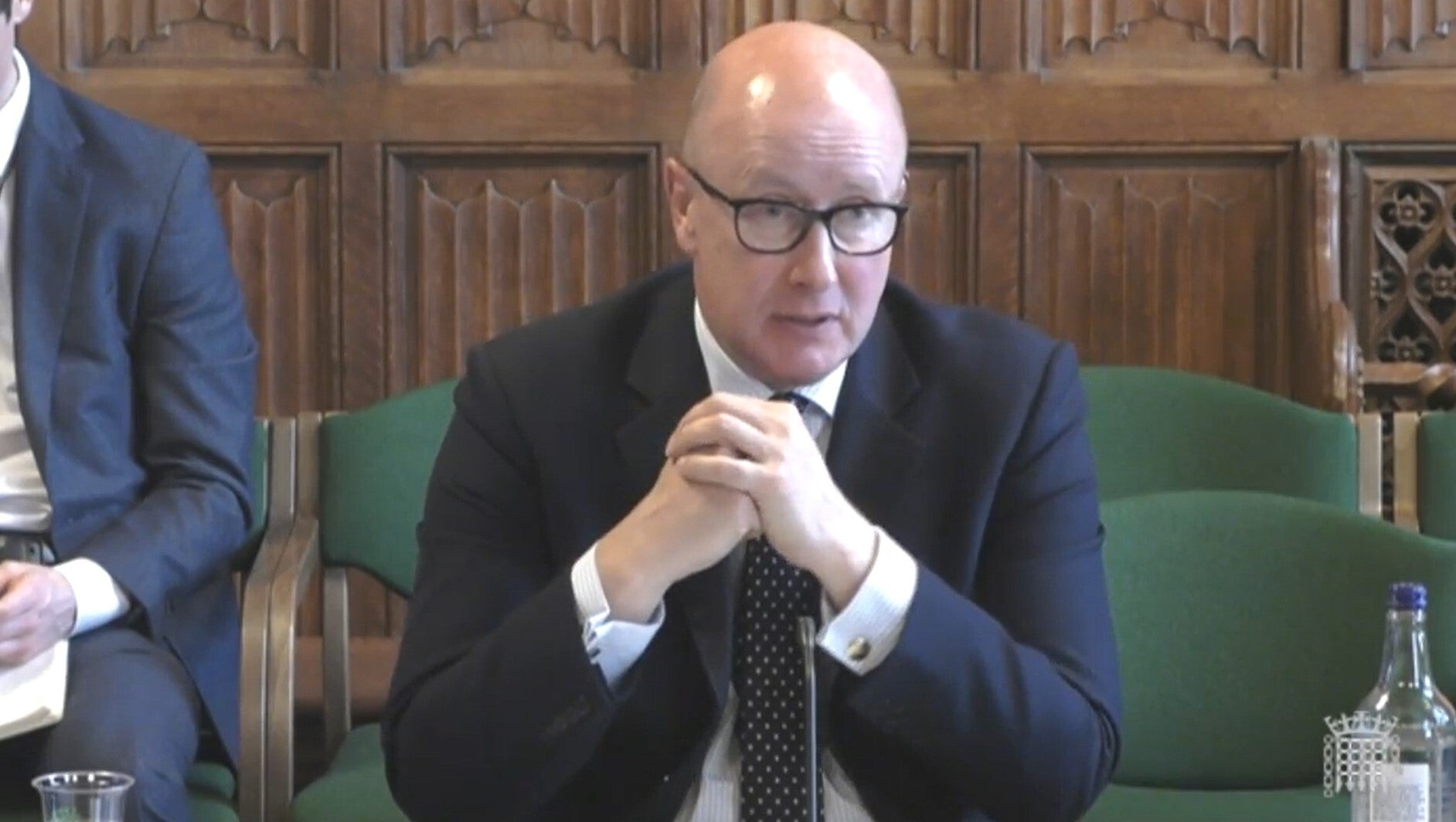Lord Geidt’s resignation: why did he go and what happens next?
Boris Johnson’s adviser on standards quit with a warning that the Prime Minister risked making a “mockery” of the ministerial code.

Your support helps us to tell the story
From reproductive rights to climate change to Big Tech, The Independent is on the ground when the story is developing. Whether it's investigating the financials of Elon Musk's pro-Trump PAC or producing our latest documentary, 'The A Word', which shines a light on the American women fighting for reproductive rights, we know how important it is to parse out the facts from the messaging.
At such a critical moment in US history, we need reporters on the ground. Your donation allows us to keep sending journalists to speak to both sides of the story.
The Independent is trusted by Americans across the entire political spectrum. And unlike many other quality news outlets, we choose not to lock Americans out of our reporting and analysis with paywalls. We believe quality journalism should be available to everyone, paid for by those who can afford it.
Your support makes all the difference.A row over international trade rules was the final straw which led to Boris Johnson’s ethics adviser dramatically resigning.
Here we look at some of the key questions surrounding Lord Geidt’s departure.
– Who is Lord Geidt?
Until late on Wednesday afternoon he was the Prime Minister’s independent adviser on ministers’ interests.
He had taken over the role following the resignation of Sir Alex Allan, who quit after Mr Johnson overruled the findings of his investigation into allegations of bullying by Priti Patel.
– What caused Lord Geidt’s exit?
The exchange of letters between Lord Geidt and the Prime Minister pins the blame on a dispute – thought to be over steel tariffs – which could involve breaking international trade rules.
Lord Geidt said the measures being considered by the Government risked a“deliberate and purposeful breach of the Ministerial Code” and “the idea that a Prime Minister might to any degree be in the business of deliberately breaching his own code is an affront”.
He said the move “to suit a political end” would “make a mockery” of the system and “I can have no part in this”.
Mr Johnson said the resignation letter “came as a surprise”, adding “my intention was to seek your advice on the national interest in protecting a crucial industry”.
– Is there more to it than that?
Lord Geidt had been on resignation watch in Westminster for weeks, and he admitted he had come close to quitting over the partygate scandal.
The peer told MPs on Tuesday it was “reasonable” to suggest the Prime Minister broke the ministerial code over coronavirus lockdown-busting parties in No 10.
In Lord Geidt’s resignation letter he referred to the Prime Minister’s failure to address criticism in Sue Gray’s report on partygate about Mr Johnson’s leadership and claims of “miscommunication” between his office and No 10.
Despite those rows, at the time he “believed that it was possible to continue credibly as independent adviser, albeit by a very small margin”.
There had also been other rows, including over the refurbishment of the Prime Minister’s flat and a failure to initially provide all the relevant information.
– What about Tuesday’s session in front of MPs?
Lord Geidt had an uncomfortable appearance in front of the Commons Public Administration and Constitutional Affairs Committee (PACAC), where he was asked whether he had considered resigning.
He told the MPs he had felt “frustration” and that the option of resignation was always “on the agenda”.
Deputy Prime Minister Dominic Raab suggested the appearance may have contributed to Lord Geidt’s decision to quit.
“I think he had a pretty rough grilling by MPs this week, I think sometimes we in the media and as politicians maybe underestimate how civil servants feel with that kind of scrutiny,” Mr Raab said.
– So what happens next?
There is no guarantee that Lord Geidt will be replaced, with the prospect of major changes to the way ministerial standards are scrutinised.
There was a space of five months between Sir Alex’s departure in 2020 and Lord Geidt’s appointment in April 2021.
Downing Street indicated there might not be a direct replacement this time round.
The Prime Minister wants to “carefully consider” issues raised by Lord Geidt and PACAC about the role before deciding how to ensure “rigorous scrutiny oversight and scrutiny of ministerial interests”, his spokesman said.
That could mean there is no one specific individual appointed as an adviser in future.
– What’s the view of the Opposition?
Labour’s deputy leader Angela Rayner called for the appointment of a new watchdog and said: “There are now no ethics left in this Downing Street regime propped up in office by a Conservative Party mired in sleaze and totally unable to tackle the cost-of-living crisis facing the British people.”
Liberal Democrat leader Sir Ed Davey said Parliament should vet the next ministerial standards watchdog “so that Johnson can’t simply appoint one of his cronies”.
SNP Cabinet Office spokesperson Brendan O’Hara said: “Another day, another scandal, another humiliation for the Prime Minister, as another sleaze adviser quits.”